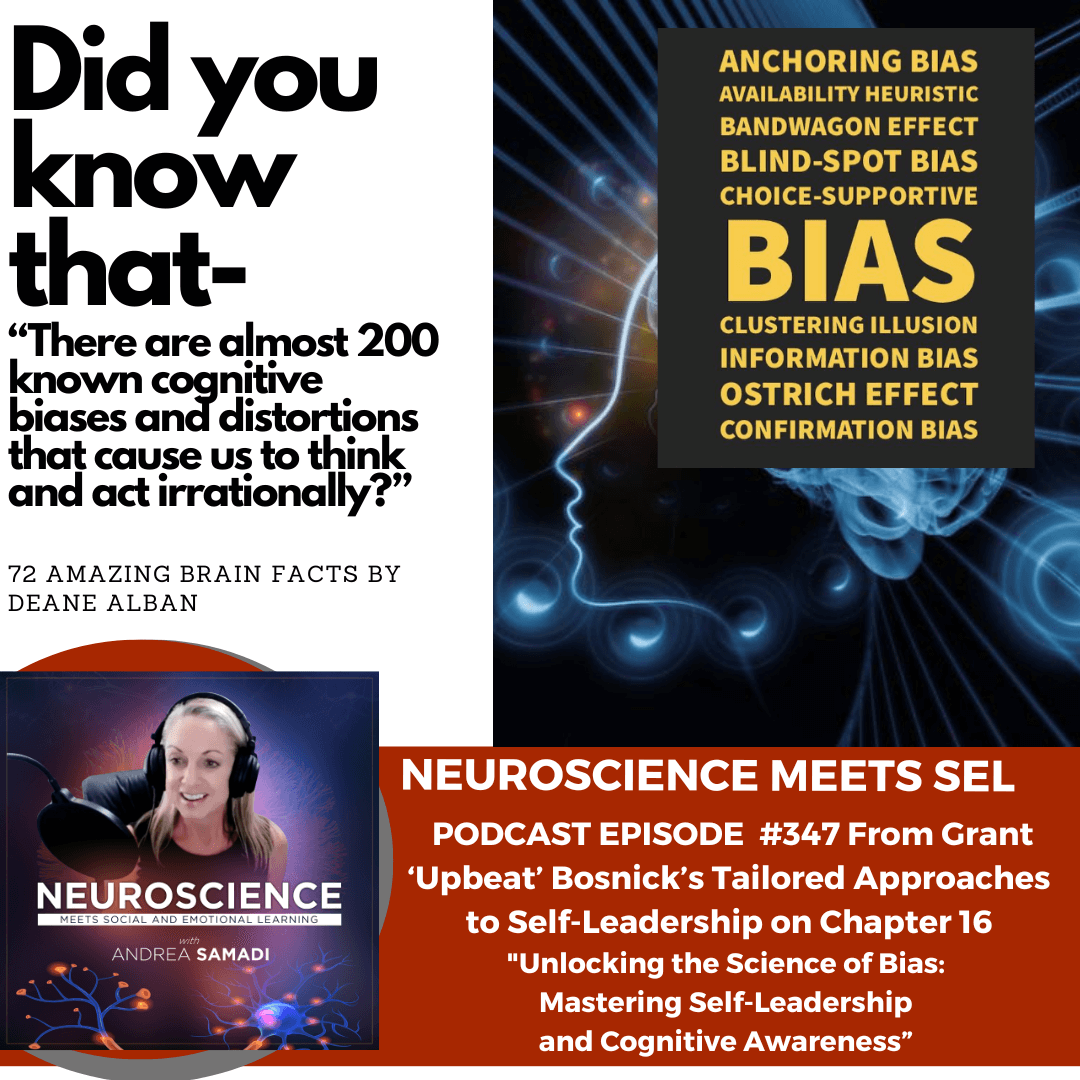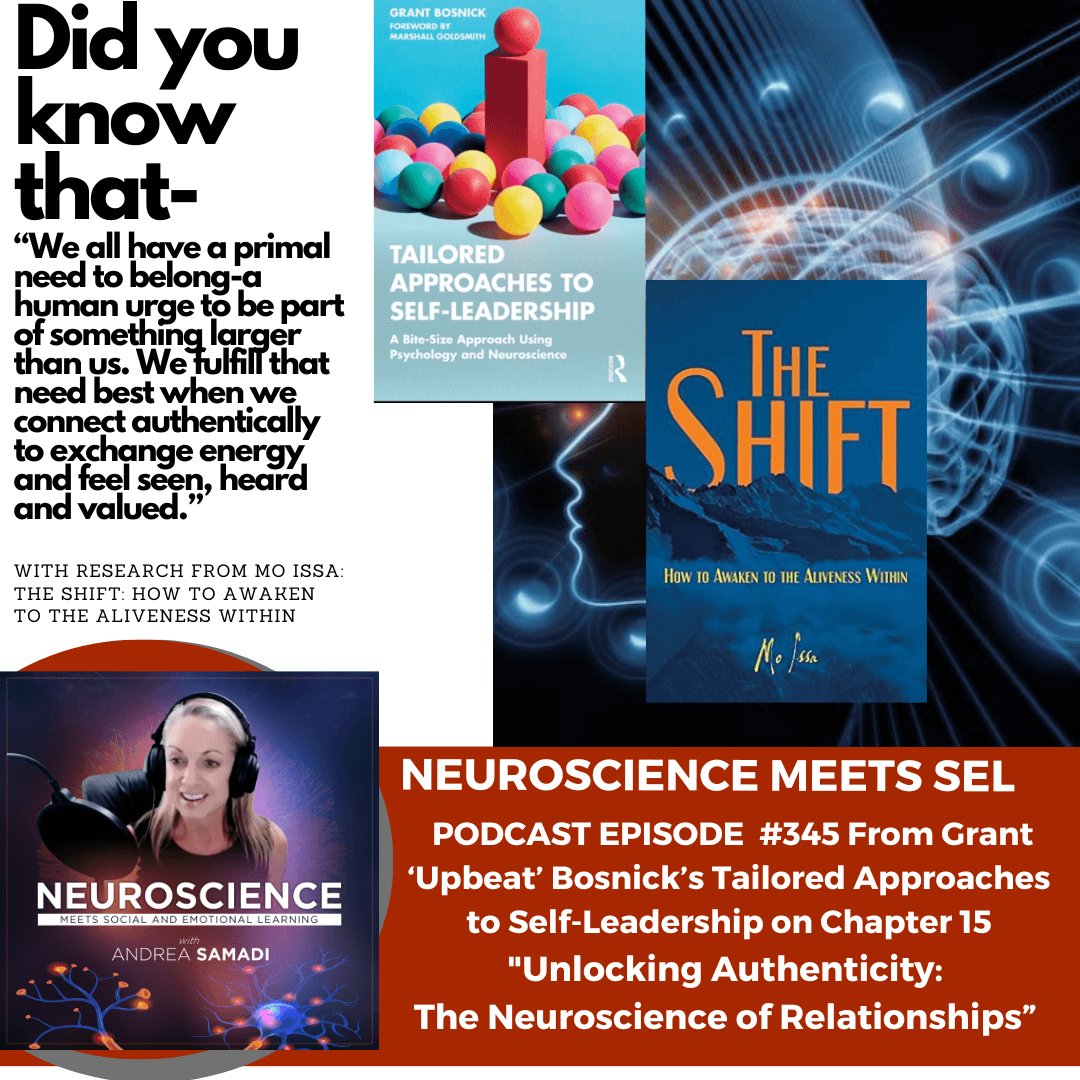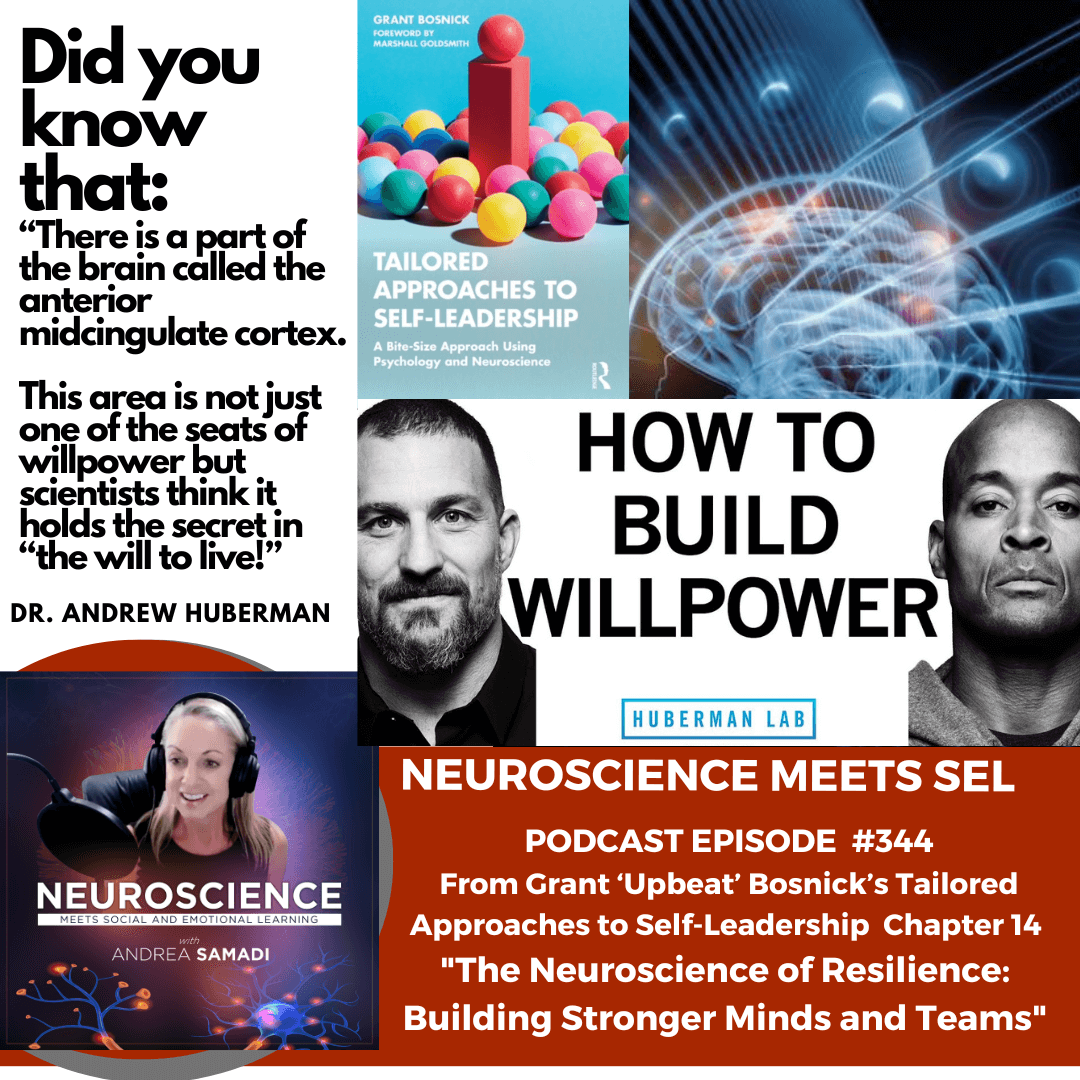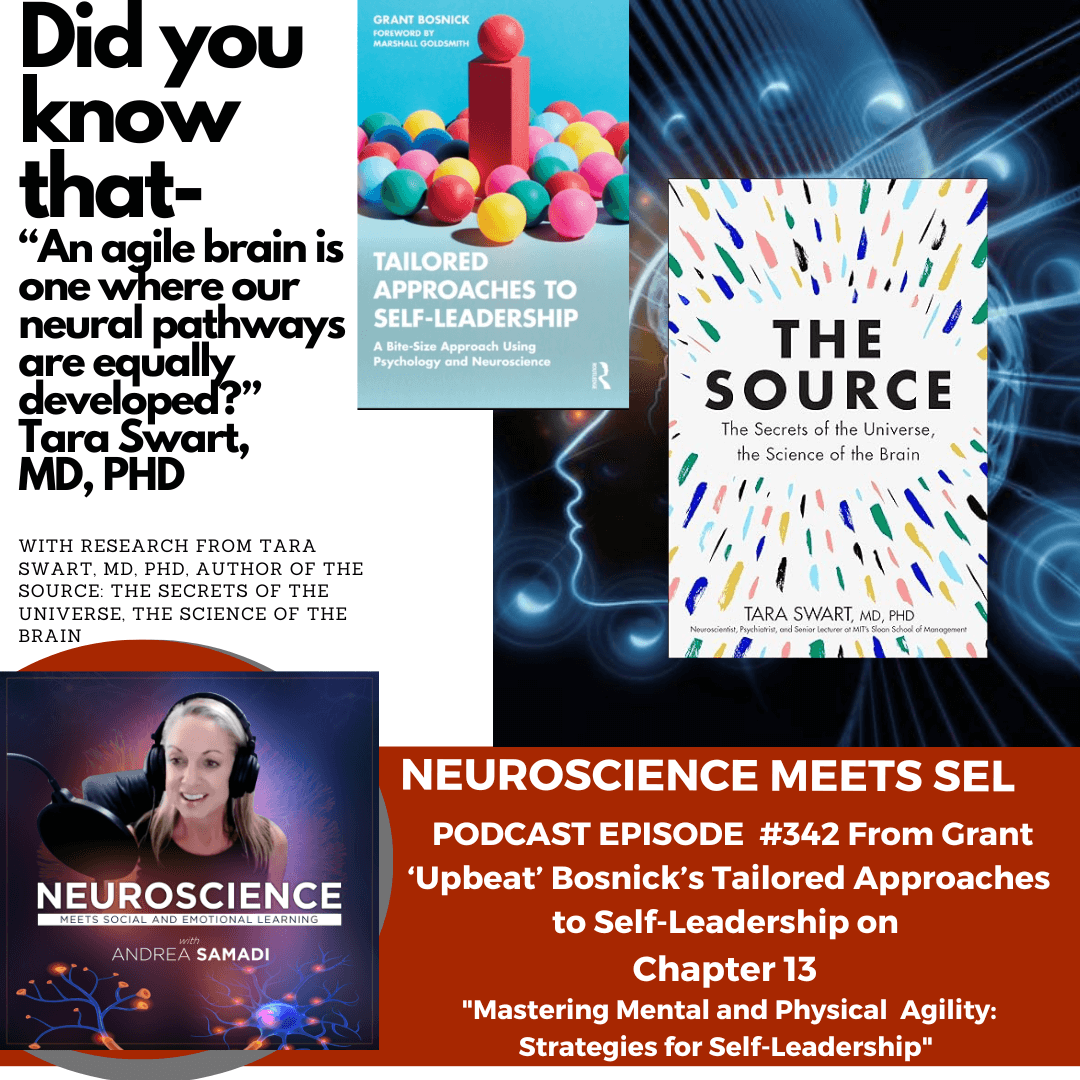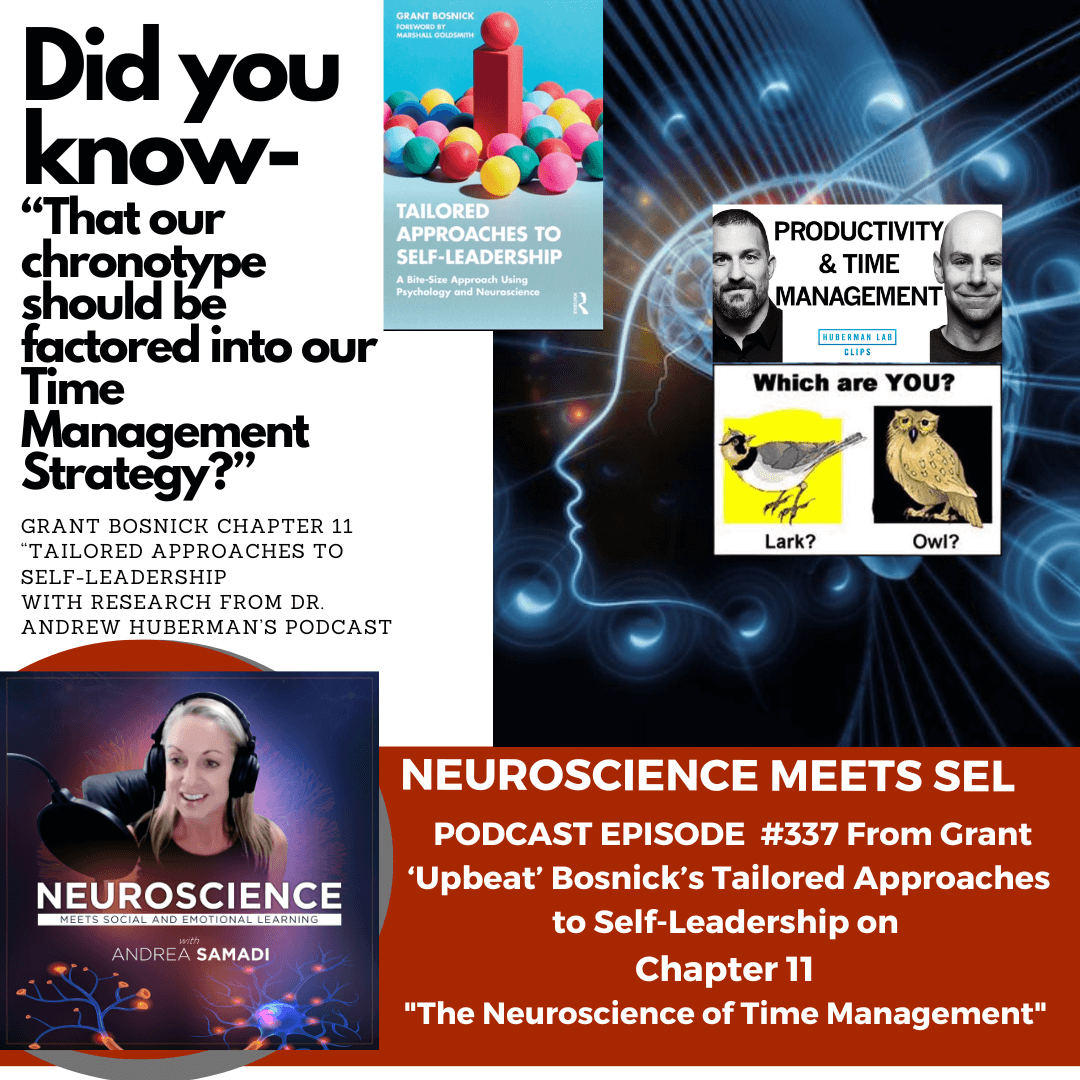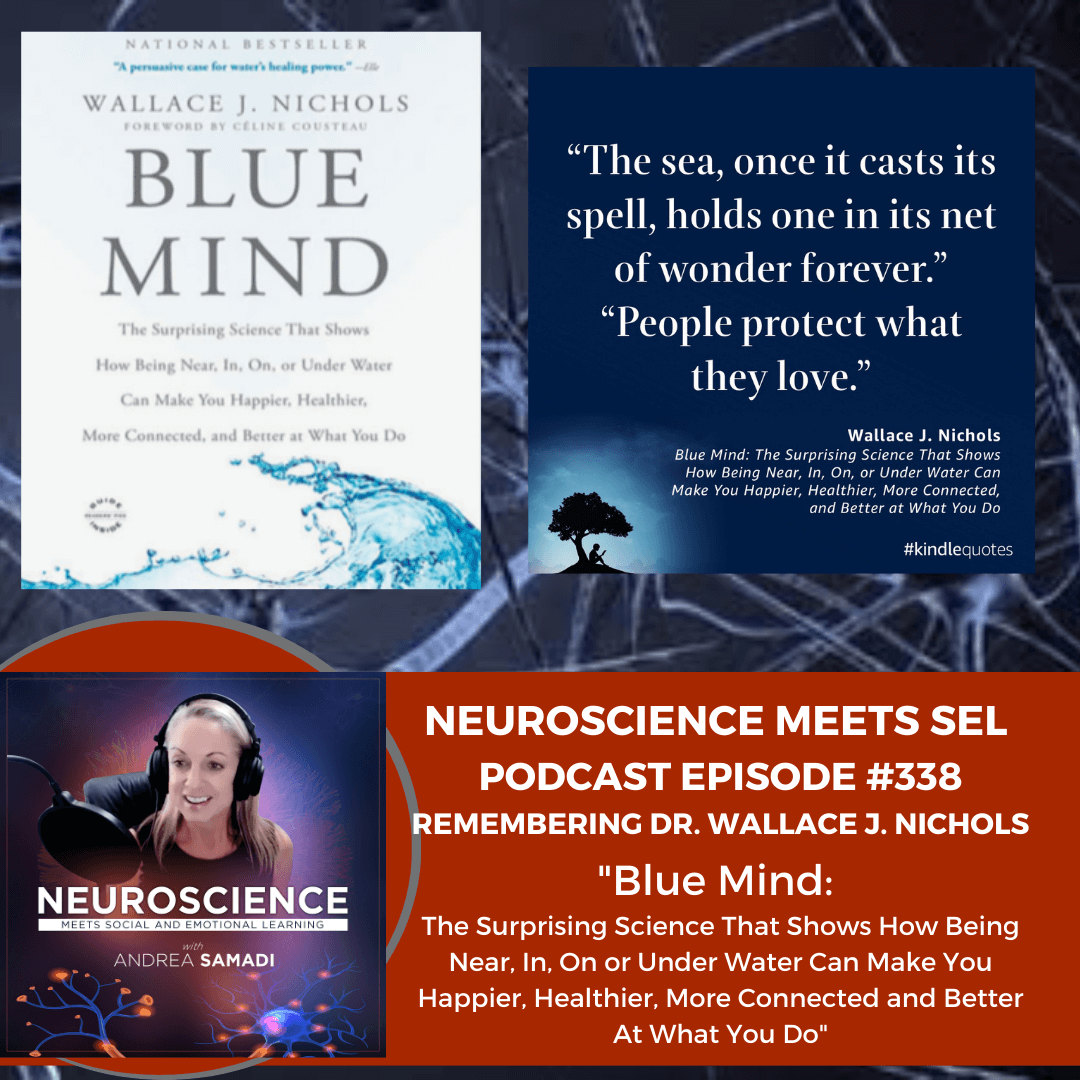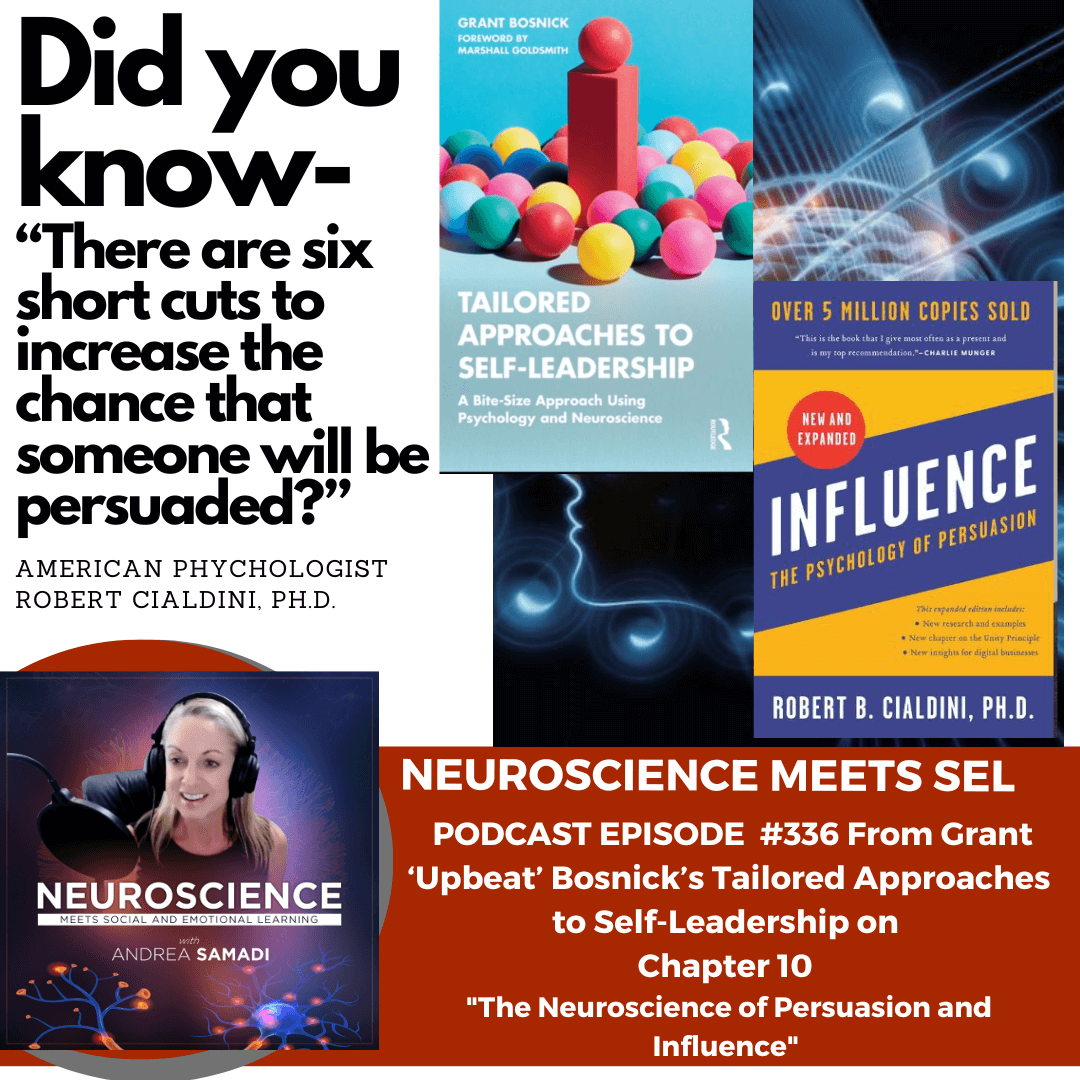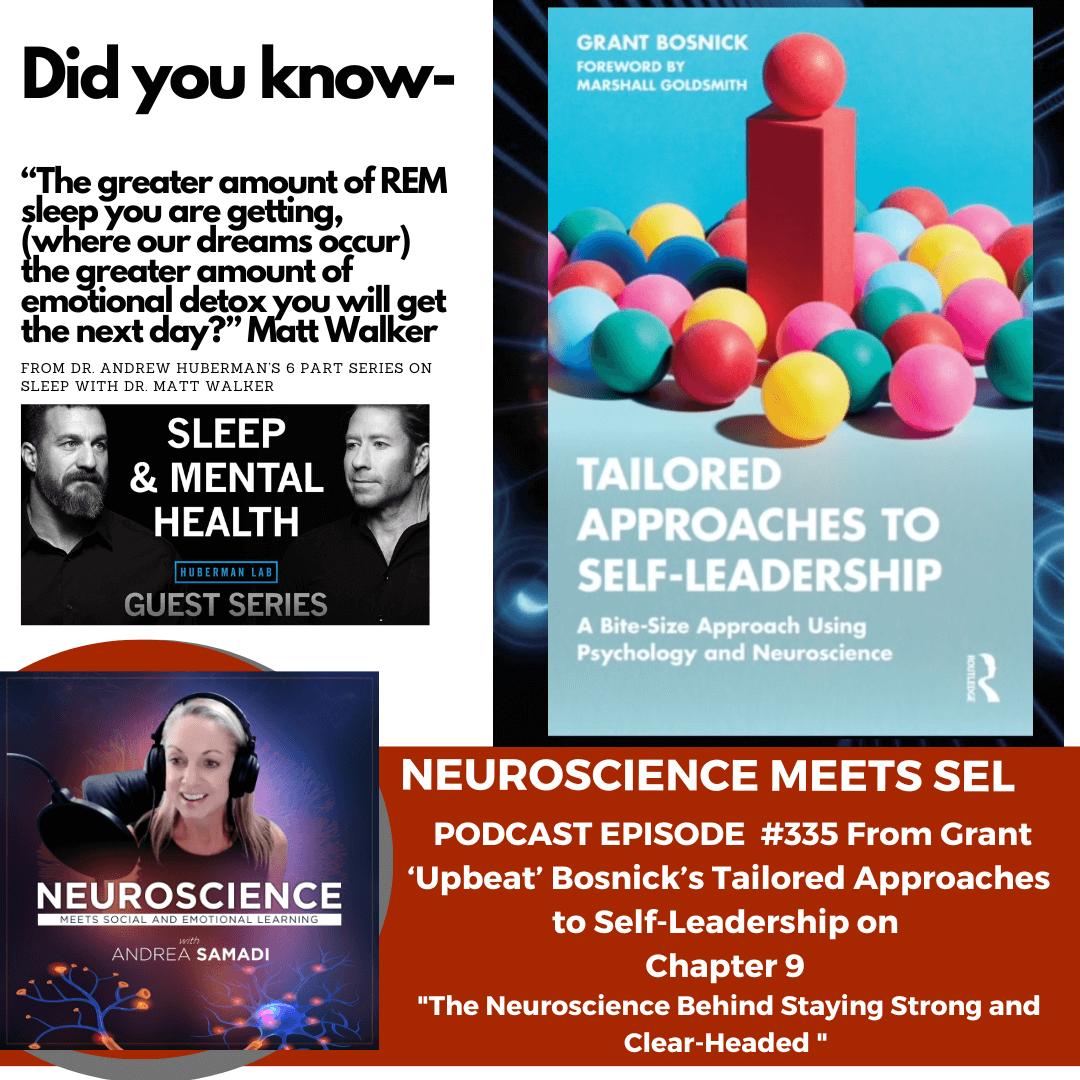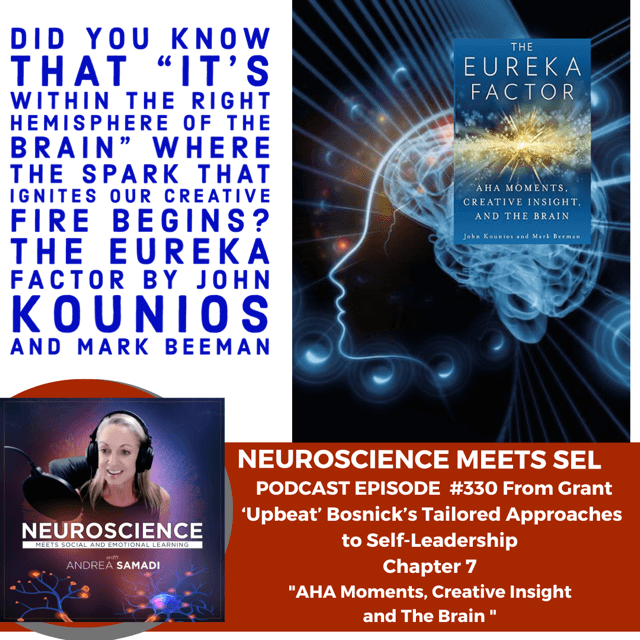Insights from Grant 'Upbeat' Bosnick: "The Neuroscience of Expectations" Chapter 8
Description
Join us on episode 333 in the 11th season of the Neuroscience Meets Social and Emotional Learning Podcast. Our mission, as always, is to equip you with actionable, scientifically supported methods to hone social-emotional learning skills, boost productivity and promote overall well-being. This episode continues our 18-week self-leadership series informed by Grant Bosnick's proven strategies. In this installment, we turn our attention to the crucial role of expectations in our lives.
Starting off the discussion in the engaging world of Grant Bosnick's book, we dissect the meaning and importance of expectations. We then explore the crucial aspects of emotion regulation, persuasive traits, effective time management, and the vast concept of change. This episode revisits key moments from our previous chapters, ranging from the neuroscience of goals to the significance of hydration on brain performance, AHA moments, creative insights, and more.
The highlight of the episode is an in-depth exploration of the science of expectations, underpinned by Grant Bosnick and David Robson's book, 'The Expectation Effect.' Here, we probe the profound influence of positive and negative expectations on our daily life, mindset, goal achievement, and even health. Inspired by teachings from luminary mentors like Bob Proctor, this illuminating exploration of expectations is designed to leave you with a fresh perspective.
Stories from an unforgettable seminar 20 years ago bring to life the immense power of expectations. Understanding the neuroscience connections, we further explore dopamine and its correlation with our level of expectations. Practical tips to apply these psychological insights in day-to-day life are provided as we take you on an intellectual journey from theory to practice.
Throughout the episode, you will discover how to better regulate your expectations to boost your happiness, productivity, and confidence. This intellectual journey will equip you with the tools to tap into the power of expectation and unlock a better version of yourself. Expect the best and join us to uncover the enormous potential within you.
Stay tuned for our next episode, 'The Neuroscience of Emotion Regulation', as we continue our intellectual journey.
Welcome back to SEASON 11 of The Neuroscience Meets Social and Emotional Learning Podcast, where we connect the science-based evidence behind social and emotional learning and emotional intelligence training for improved well-being, achievement, productivity and results—using what I saw as the missing link (since we weren’t taught this when we were growing up in school), the application of practical neuroscience. I’m Andrea Samadi, an author, and an educator with a passion for learning and launched this podcast 5 years ago with the goal of bringing ALL the leading experts together (in one place) to help us to APPLY this research in our daily lives.
On today's episode #333 we continue with our 18-Week Self-Leadership Series based on Grant Bosnick’s “Tailored Approaches to Self-Leadership: A Bite Size Approach Using Psychology and Neuroscience” that we first dove into with our interview on EP #321[i] the end of January. The goal was that each week, we focused on learning something new, (from Grant’s book) that builds off the prior week, to help take us to greater heights in 2024. Today we cover Chapter 8, “The Neuroscience of Expectations” and l look at what Grant Bosnick covers on this topic, as well as a deeper dive into David Robson's book, The Expectation Effect.
We will cover:
✔ What is the meaning and importance of expectations?
✔ An unforgettable moment when Andrea first encountered the power behind our expectations.
✔ We will explore the science of expectations to boost your happiness, productivity, and confidence.
✔ 3 TIPS for applying The Neuroscience of Expectation to your daily life.
✔ Ideas to trouble-shoot applying this concept, along with belief, to achieve your goals and dreams.
I did need to take a short break from writing and recording since we last covered this book, the end of March, with new responsibilities in my work world. I’ve got my footing now, and missed researching, recording, and producing these episodes. The benefits that I personally receive from gathering this information, and sharing with it you, the listener, wherever you might be tuning in around the world, helps me in many different ways, but mostly, this work keeps me thinking, and making connections, neural connections, which we all know is important for cognition and learning. I did appreciate the notes from listeners of past episodes they have found helpful, and will continue to provide my best work here. We will resume the final 5 chapters of Grant’s book, based on Self-Leadership strategies, covering the topic of expectations today, then emotion regulation, persuade and influence, time management and ending the series with change.
Just a reminder that we left off with Chapter 7 on “AHA Moments and Creative Insight.[ii]” There is great power and immense self-awareness that comes along with mapping out a plan designed specifically for YOU and I do encourage everyone to take Grant Bosnick’s Leadership Self-Assessment[iii] so you can see the areas for you that score a high, medium or low level of importance for you to focus on this year.
REVIEW Chapters 2, 3, 4, 5, 6 and 7
Before we cover Chapter 8 today on Expectations, let’s review where we left off, since this is a good reminder for me, to make the connections from these prior episodes.
It’s here I’m hoping we will take the information we are learning, (from Grant Bosnick’s book) connect the dots to form knowledge and then apply this knowledge to our daily life. This is where we go from theory to practice with this podcast and it’s the application of what we are learning that contains the magic.
REFLECT Back to Chapter 2 on The Neuroscience of Goals (and Kurt Lewin’s Force Field Theory): What are we doing to gain the momentum needed to reach NEW and HEIGHTENED levels of performance this year? How are we improving our mental and physical health to gain the momentum we talked about in this chapter? Just the fact that you are here listening to this episode, and I’m writing it, is a good indication we are all building this skill. What have you noticed with the momentum you’ve built with your goals this year? Are you on track? How can you narrow your focus more?
REFLECT Back to Chapter 3 on The Neuroscience of Inspiration: How are we using people or places that inspire us, to take our results to greater heights? Think about this as it relates to our physical and mental health. What else can we all do to take more action in this area? I recently connected with someone who caught my attention over 20 years ago, when I worked with athletes at ASU. I remember sitting in front of this one athlete, and just knew he was going somewhere. We are working on the details to have him on the podcast right now, but stay tuned for a future episode on “Diving into the Mindset of a D1 College Athlete, Turned Pro” with Nigerian-American professional basketball player, Ike Diogu. Who are what is inspiring you these days?
REFLECT Back to Chapter 4 on The Neuroscience of Mindfulness: Think about where we are in our Mindfulness Journey? Mindfulness, and breathing was listed often in Chapter 4 of Grant Bosnick’s book. How is mindfulness helping us with our physical health?
What’s interesting to me with this topic, is that the more I continue to study, and look to improve my own areas of weakness (right now I’m looking at how to optimize sleep which is currently my weakest link) and am diving deep into this topic with Dr. Matthew Walker’s most recent 6 PART podcast series with Dr. Andrew Huberman.[iv] Mindfulness is a topic that Dr. Walker lists as integral for improving sleep. I’m curious how you are implementing this skill to improve daily results.
REFLECT Back to Chapter 5 on The Neuroscience Behind Peak Performance: How are we practicing “getting into our flow?” When do we notice we are in flow the most? Is it during physical exercise, or meditation? Are we practicing this state to gain 5x more productivity this year? This is a hard one, as getting into this flow state requires practice for me. A month and a half away from this podcast, really did take me out of my flow state here. After recording an interview, and editing, I made many mistakes, or flat out forgot what to do next on the production side. I was rusty, and not in flow. I’d been producing episodes for 5 years, without taking a break, and this break revealed that the skills I’d developed need to be practiced. Use them, or lose them type of idea. This is exactly how my daughters explain what happens to them when they take time away from their sport with an injury. I learned that when we lose this flow, the best way to get it back is to get back to work, as best as we can. One step at a time. What about you? How are you using flow in your daily life?
REFLECT BACK to Chapter 6 on The Science Behind our Physical Health:
Where we narrowed our focus from a wide and complex field, to something we can implement immediately with “The Hydrated Brain for Improving Our Cognitive Performance.” Midway through the year, I’m thinking “How am I keeping my brain hydrated?” Do I know how much water I’m drinking every day? This is something I’ve put more emphasis on recently, as we have now introduced an Infrared Sauna to our daily routine, and this requires more water to help eliminate toxins. They recommend drinking 20 ounces of water before using the sauna, since sweating can cause dehydration, and drinking at least a liter (or four 8 o



